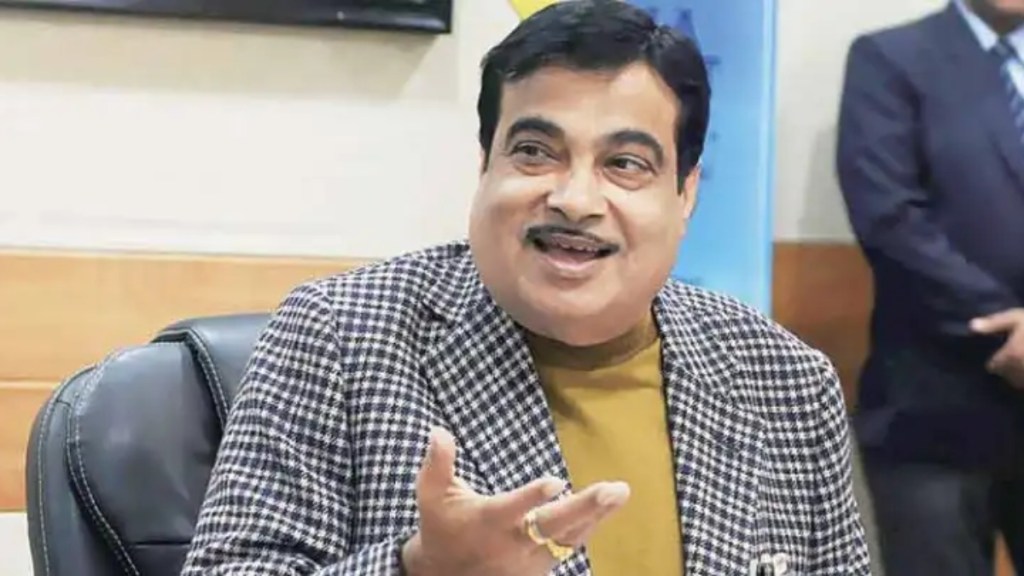Union Minister Nitin Gadkari has outlined India’s ambitious goal of bringing the country’s infrastructure standards up to that of the US within the next five years. He added that as part of its strategy, the government aims to address metro congestion, significantly reduce travel time, and minimize road accidents.
He highlighted that over the past nine years, the ministry has allocated projects exceeding Rs 50 lakh crore and has streamlined the contract approval process by refining existing policies.
In an interview published in the Manorama Yearbook 2024, Gadkari emphasized the ministry’s commitment to transparency, time-bound decision-making, and quality-conscious approaches. He expressed confidence that, in five years, India’s road infrastructure will be on par with the US.
“We encourage good work, and that is why we have seven world records. This is the great achievement of the ministry,” he added.
Gadkari stressed the importance of futuristic development in infrastructure, citing the need for robust infrastructure to attract capital investment, both domestic and foreign, ultimately aiming to alleviate poverty and generate employment. He also highlighted the significance of the automobile sector in India, which has recently surpassed Japan to become the third-largest behind China and the USA.
He said that the industry is worth Rs 7.5 lakh crore, adding the sector generates the maximum GST to the states and central government. It has also created 4.5 crore jobs up till now, the minister added. He laid down his vision to double the size of the Indian automobile industry to Rs 15 lakh crore in the next five years.
“This is the way in which we are progressing in every sector. We are already the fastest growing economy and people are more interested in dealing with India,” he further said.
Gadkari pitches for electric and flex fuel vehicles
The Union Minister threw his weight behind the introduction of electric and flex fuel vehicles in order to reduce the consumption of fossil fuels. The import bill of such fuels is Rs 16 lakh crore.
These days, some vehicles, with flex engines, are being powered by ethanol instead of petrol. This will bring down the average cost of fuel to Rs 15.
“We are now opening ethanol pumps,” Gadkari said.
Highlighting the push farmers would get from this, Gadkari said, it will help farmers become ‘urjadaata’ (energy producer) while being ‘anndaata’ (food producer) as ethanol can be produced from sugarcane and rice stalk.
Future of public transport
Discussing the future of public transportation, Gadkari mentioned the introduction of ropeways, cable cars, and efforts to run public transport on electricity. He predicted a transformation in public transport within five years, making it less polluting and more cost-effective.
To decongest metros, projects totaling over Rs 65,000 crore have been undertaken, including the Dwarka Expressway (Rs 9,000 cr), six-lane urban extension roads in the National Capital (Rs 8,000 cr), Eastern Peripheral Expressway (Rs 12,000 cr), and Delhi-Meerut Expressway (Rs 8,000 crore). Gadkari also highlighted key infrastructure projects, such as the Atal Tunnel at Rohtang Pass, reducing travel time significantly.
Talking about the ministry’s efforts towards faster travel time, he brought in the example of Atal Tunnel at Rohtang Pass between Manali and Lahaul-Spiti Valley which has cut down the travel time from three hours to eight minutes.
Similarly, the Katra-Delhi Expressway is poised to facilitate travel between Delhi and Amritsar in four hours, Delhi and Katra (Jammu and Kashmir) in six hours, and Delhi and Srinagar in eight hours. In Ladakh, construction has commenced on the largest tunnel in Asia at Zojila Pass.
Revealing further developments, the minister shared information about the construction of strategically significant new border roads. Thirty of these roads are designed to accommodate airplane landings safely. Plans are in progress to establish 670 roadside amenities equipped with heliports and drone ports.
Gadkari emphasized the crucial role of entrepreneurs and startups in rejuvenating the Indian economy, stressing the need to support those with entrepreneurial spirit and innovative technologies.
While acknowledging his commitment to reducing accidents by 50 percent, the minister conceded that the desired results have not been achieved. Annually, five lakh accidents and 1.50 lakh deaths occur, leading to a three percent GDP loss. Gadkari identified the issue as a complex interplay of factors involving automobile engineering, road engineering, and public awareness. He noted a lack of respect for traffic laws and emphasized the urgency of changing people’s mindsets about road safety, calling for collaboration with media, social and educational institutions, as well as NGOs, to address this imperative challenge.
(With PTI inputs)

